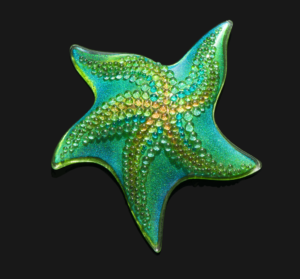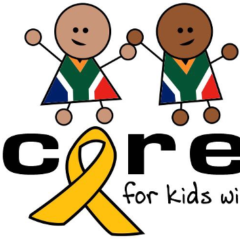Once upon a time, there was an old man who used to go to the ocean to do his writing.He had a habit of walking on the beach every morning before he began his work. Early one morning, he was walking along the shore after a big storm had passed and found the vast beach littered with starfish as far as the eye could see, stretching in both directions.
Off in the distance, the old man noticed a small boy approaching. As the boy walked, he paused every so often and as he grew closer, the man could see that he was occasionally bending down to pick up an object and throw it into the sea. The boy came closer still and the man called out, “Good morning! May I ask what it is that you are doing?”
The young boy paused, looked up, and replied “Throwing starfish into the ocean. The tide has washed them up onto the beach and they can’t return to the sea by themselves,” the youth replied. “When the sun gets high, they will die, unless I throw them back into the water.”
The old man replied, “But there must be tens of thousands of starfish on this beach. I’m afraid you won’t really be able to make much of a difference.”
The boy bent down, picked up yet another starfish and threw it as far as he could into the ocean. Then he turned, smiled and said, “It made a difference to that one!”
adapted from The Star Thrower, by Loren Eiseley (1907 – 1977)

Recently I took the kids to the Rand Show. It used to be called the Rand Easter show but now it goes on for days, bringing in hundreds of thousands of rands. We watched a re-enactment of a battle by the SANDF which gave me a new respect for the well-trained soldiers of our nation, and terrified the life out of me. Helicopters, smoke, loud explosions, dead “insurgents” and “rebel forces”, people rappelling down ropes from hovering helicopters, medical evacuations, more loud explosions, tanks…
I took the opportunity to cash in on my boys’ terror and remind them how destructive wars can be, and how we should settle our differences in a more constructive manner. I think the allusion to their ongoing battle for dominance over each other was lost on them.
We recovered from that with a burger, a monorail ride and a visit to the Naked Scientist. At first, I was in Nerd Heaven. Any question he was asked, he had an answer to. For those he didn’t know straight away (and there were questions one could see he’d been asked many times before), he worked them out by first principles. He spoke about what he knew as fact, he theorised a bit and then he came to a final answer. He had the confidence to be able to stand up in front of a room full of strangers asking questions in accents he found hard to understand, and think on his feet. My boys were desperate to ask a question, any question, but they were too shy to actually put their hands up. Their teachers would have been surprised, I’m sure.
So, in the spirit of good motherhood, I caught the Naked Scientist (Chris Smith) after the show to put my questions to him.
But first, an elderly man barged in to ask a question. He didn’t acknowledge me, he didn’t seem to see me, and the Naked Scientist didn’t even seem to notice. Bloody hell! I’d been standing there in the imaginary line, waiting my turn, and an elderly white male felt absolutely no skaam pushing in front of me. I considered telling him afterwards that he’d pushed in front of me but I wondered if I’d actually achieve anything. He was old (old dogs new tricks…), a bit doddery and he had hearing aids in, so I might have had to shout or repeat myself, which felt embarrassing. So I just let him go on and waited my turn (again!).
My first question was, if the massive asteroid that hit the Earth about 60-65 million years ago had caused such damage, wiping out those majestic, terrifying dinosaurs, what were the chances of a similar event happening today? The short answer was, the galaxy is evolving and when that huge object hit the Earth, there was a lot more space debris flying around. Nowadays, the volume of space debris that hits the Earth is no more than two aircraft carriers in total, and there are no big ones. All the big ones have been absorbed already into the gravitational pull of some planet or other. The second factor to comfort us Earth-dwellers is that there is a sophisticated system of observational infrastructure that is constantly scanning Space around us to look for objects that might be on a flight-path to Earth. It uses radar (not sonar) and computational models and keeps us all safe by estimating if there are any large flying objects that might cause a problem. Just like in the movies!
Because I felt bad about asking two questions (Gracious! How presumptuous of me!) I gave way to the next person who popped up to ask a question. And the next.
My second question was about whether the answer to the low-carb, high-fat, high-protein diet question had finally been answered. Or, in other words, who is right – Tim Noakes or the American Heart Association. And here the wheels fell off a bit. I could see the assumption in his eyes. I was just another mom looking after her kids, asking questions for them that they were too shy to ask themselves, and really I just wanted to know which diet was better for me to lose weight.
Major internal eye-rolling going on here. But also an opportunity for self-examination and reflection.
If I had said to him, you’re a doctor, I’m a doctor. You’re a specialist, I’m a specialist. You’re a sub-specialist, I’m a sub-specialist (in his case internal medicine and microbiology-virology and in mine paediatric oncology), if I’d laid my academic credentials on the table, perhaps he would have taken me more seriously. Instead I chose to present myself as just another harried mother who exposes her kids to educational opportunities and then asks questions for them. His answer was wildly annoying – he hadn’t stopped to find out what I was really asking and he assumed I was just another overweight middle-aged woman who wanted to shift a few kilos. He missed the opportunity to shoot the breeze with a fellow professional about conflicting data, and I felt unseen and unheard. I blame myself pretty much entirely, which may or may not be part of the problem. It also brought up the issue of people from the “developed world” assuming that people in low and middle income countries (SA is an upper middle country, BTW) are inferior. They assume that we have inferior knowledge, inferior understanding and are responsible for our inferior infrastructure.
Now, I’m the first to admit that our survival outcomes for kids with cancer are inferior. Children who are diagnosed with cancer in South Africa have just over a fifty percent chance of surviving. Fifty-fifty, only slightly better than the chances if we flip a coin. Shall we blame the inferior doctors and nurses? Well, if you think the playing field is even, let me disabuse you of that notion. A similar paediatric oncology unit in, let’s say, Canada, has ten time the number of medical staff. Ten times the staff for the same number of patients! There’s a large children’s hospital in Texas, USA, that has more paediatric oncologists than the whole of the African continent (my estimate – at this point there is no solid data, but we’re working on that). And guess what? Children treated there have a more than 80% chance of being cured.
Our population is prejudiced before they even hit the wards. They’re undernourished on a scale that is hard to comprehend, and yet they’re far better off than most other children in Africa. We don’t have civil war, like DRC. We don’t have repeated natural disasters like the floods in Mozambique in 2000 or the drought in East Africa in 2011. We don’t have systemic, devastating corruption taking food out of the mouths of babes like Zimbabwe. Sure, we have our problems in South Africa, and the inequality gap has increased since the inception of democracy, but we’re better off than many of our neighbours. And still, kids are starving and because they’re starving, they tolerate chemo poorly. They’re prone to more infections and their undernourished little bodies are more likely to develop toxic effects of life-saving chemotherapy.
The bottom line is, no matter how many well-trained doctors and nurses we have, no matter how many professionals we include in a well-functioning multi-disciplinary team, the odds are stacked against us and therefore our patients. We may raise the survival rates incrementally, and every extra child we save is their own little starfish, and their starfish family will always be immeasurably happier and more whole than if their starfish hadn’t been thrown back in the sea… However, this game is not about saving one or two starfish. This game is not a game. It’s a life-or-death fight waged on battle fields we don’t have any influence over and the casualties are kids with cancer. And the ones whose moms and dads have the wherewithal to give them a good meal before going into battle, and have put on cute little suits of armour are more likely to survive the battle. Unfortunately, most moms and dads in this story don’t have the resources to give their kids the advantages they need to survive the war.
(And I swore I wouldn’t use battle imagery to talk about cancer. There are so many problems with it. Sorry, folks.)
I don’t have all the answers. In fact, the further I go, the fewer answer I seem to have, the more battle scars I earn for myself, and the war seems ever bigger and more sophisticated. What I learned from my encounter with the Naked Scientist was that I am not immune to the forces that keep us enslaved. In my case, being a woman, a mother and a clinician-scientist in a middle income country. I always thought sheer will and persistence would get me through all life’s battles, but now that I am taking on a larger fight for vulnerable children, I realise I have to organise. It’s not enough for me to play this game on my own. It’s not enough to throw a couple of starfish back in the sea. And so, I am organising. CARE is this close being registered as a non-profit organisation. There are some crew members about to come aboard the CARE ship. If you are someone who wants to be part of this team, please let me know in the comments.
We’re no longer trying to throw one or two starfish back in the sea – we’re aiming to change the currents.
